Results
-
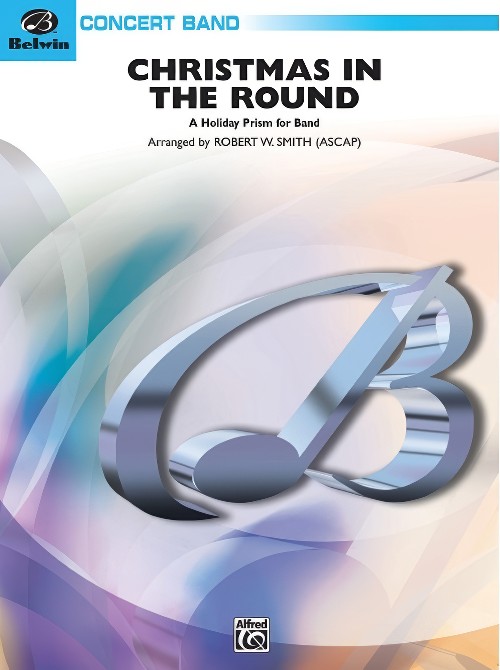 £73.50
£73.50Christmas in the Round (Concert Band - Score and Parts) - Smith, Robert W.
Subtitled "A Holiday Prism for Band," this work can be presented in a theatre-in-the-round format or more traditionally on the concert stage. Following a broad introduction, each family of the band presents their independent carol. Carols include "The Ukrainian Bell Carol," "Silent Night," "What Child Is This?" "Jingle Bells," "Joy to the World," "Deck the Halls," "We Wish You a Merry Christmas," and "God Rest Ye Merry Gentlemen." Prepare the introduction and the finale then let the sections prepare their own carol. Include them all or not. Traditional, contemporary, humorous, and stately, each choir brings a unique facet to this holiday prism. A valuable contribution to the festive literature.Duration: 10.45
Estimated dispatch 7-14 working days
-
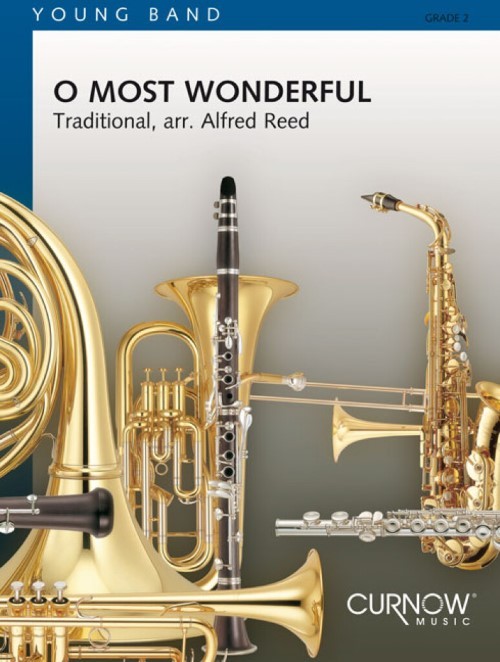 £64.99
£64.99O Most Wonderful (Concert Band - Score and Parts) - Reed, Alfred
This Christmas carol of ancient European origin begins O Sanctissima and was intended as a tribute to the virgin Mary. A 19th-century translation by Falk gave us the words O How Joyfully that are typically associated with this carol. In addition to its colourful history, this carol has a very warm and expressive character. In this setting by Alfred Reed, the lilting melody is interwoven with a heroic trumpet counter-melody.Duration: 2.00
Estimated dispatch 7-14 working days
-
£59.99
God rest ye merry Gentlemen Wind Band Set (Score & Parts)
God rest ye merry, Gentlemen' is an ancient English carol. It was first published in 1833, but it can be traced as far back as the 15th century, which makes it one of the oldest carols known. 'God rest ye merry' is a Middle English salutation. In this manner, people wished one another greatness and might. In modern English, the first line of this carol would read 'May God keep you mighty, gentlemen'. Andrew R. Mackereth has not kept to the original words in his up-tempo arrangement of the carol. It is still clearly recognizable, but the arranger has taken a good many liberties. Sometimes a particular note is held longer, at times motifs follow one another in various parts. If you listen carefully, you may even be able to detect a motif from another well-known song. 01:45
Estimated dispatch 7-14 working days
-
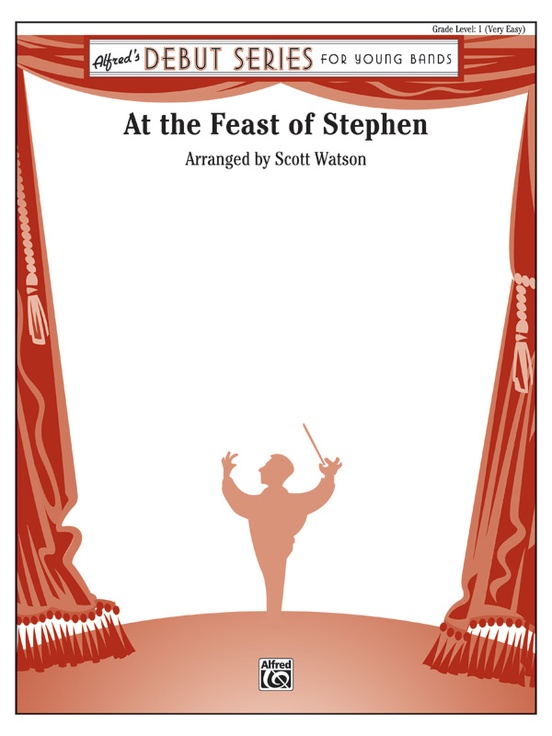 £52.95
£52.95At the Feast of Stephen
This novel setting of the traditional carol "Good King Wenceslas" will musically transport you and your students to the royal Christmas banquet hall of a medieval king! The old carol tells the story of a legendary 10th-century monarch, Duke Wenceslas of Bohemia, who went out in the severe cold to give charity to the poor on December 26, also known as St. Stephens Day. The well-known 13th-century carol tune, as well as additional original material in period style, vividly conjures a lively celebration of Christmas in the high Middle Ages. (2:31) This title is available in MakeMusic Cloud.
Estimated dispatch 3-5 working days
-
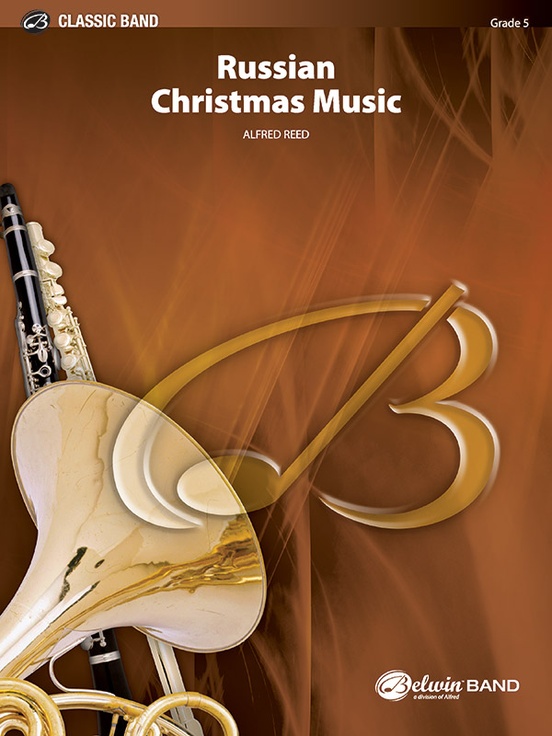 £82.95
£82.95Russian Christmas Music - Alfred Reed
The theme carefully explored by Alfred Reed in this repertoire standard is "Carol of the Little Russian Children" which is an ancient Russian Christmas carol. You can hear four distinct sections originally called "Children's Carol," "Antiphonal Chant," "Village Song" and "Cathedral Chorus" all joined in this continuous contemporary setting. The almost overwhelming sound picture with varied tone colors and brilliant brass choir sounds is a classic in every sense. "Russian Christmas Music" by Alfred Reed is a worthy addition to the Belwin Classic Band series. This recording compliments of the United States Air Force Band, Col. Lowell Graham, conductor.
Estimated dispatch 3-5 working days
-
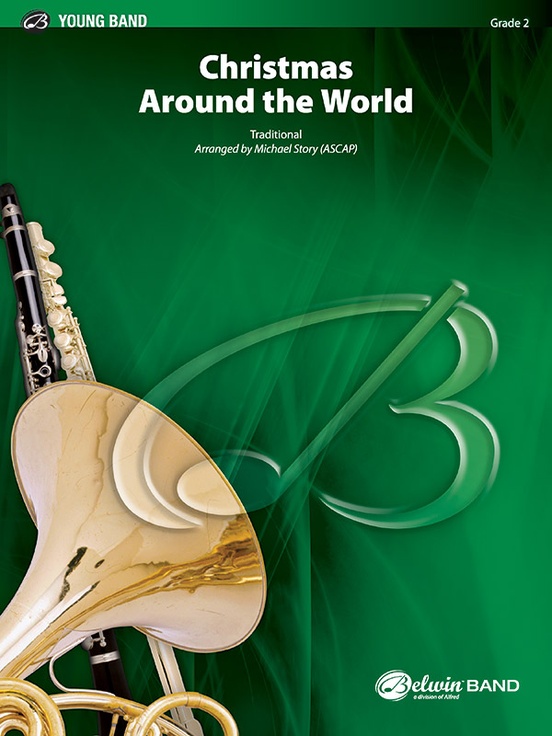 £55.50
£55.50Christmas Around the World
A celebration of Christmas carols from around the world. Michael Story has woven together a traditional English carol "God Rest Ye Merry Gentlemen," from France, "Angels We Have Heard on High," from Spain, "Fum, Fum, Fum," the Chinese carol "Midnight, Sleeping Bethlehem" and the traditional American carol "Go Tell It on the Mountain." This joyous collection of carols will certainly fulfill your holiday concert needs and reinforce multicultural musical history instruction. A super choice. (5:09)
Estimated dispatch 3-5 working days
-
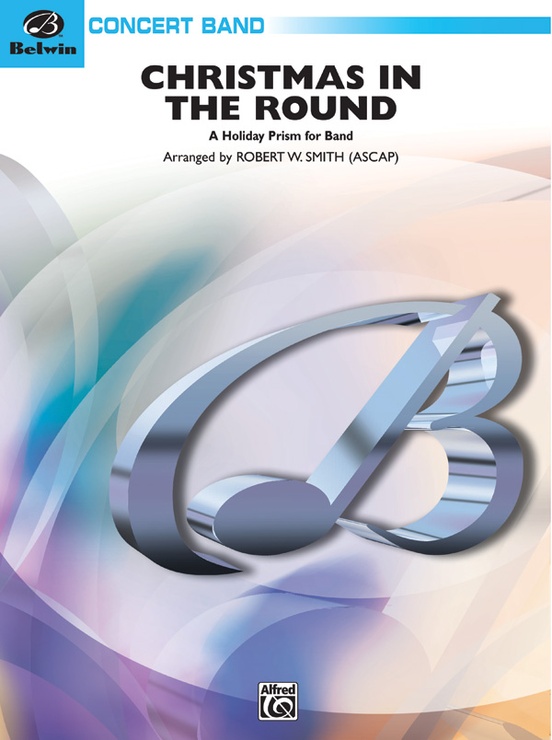 £73.50
£73.50Christmas in the Round
Subtitled "A Holiday Prism for Band," this work can be presented in a theater-in-the-round format or more traditionally on the concert stage. Following a broad introduction, each family of the band presents their independent carol. Carols include "The Ukrainian Bell Carol," "Silent Night," "What Child Is This?" "Jingle Bells," "Joy to the World," "Deck the Halls," "We Wish You a Merry Christmas," and "God Rest Ye Merry Gentlemen." Prepare the introduction and the finale then let the sections prepare their own carol. Include them all or not. Traditional, contemporary, humorous, and stately, each choir brings a unique facet to this holiday prism. A valuable contribution to the holiday literature.
Estimated dispatch 3-5 working days
-
£49.95
Angel Trumpets - Score and Parts - Richard Phillips
This march contains a selection of carols with linking themes; 'Hark! the herald angels sing' and 'Angels from the realms of Glory' proclaiming 'Joy to the world' are clearly evident. The latter stage of the march employs an English traditional carol, 'The holly and the ivy' and a Welsh traditional carol, 'Deck the hall with boughs of holly'.
Estimated dispatch 7-14 working days
-
£9.95
Angel Trumpets - Score only - Richard Phillips
This march contains a selection of carols with linking themes; 'Hark! the herald angels sing' and 'Angels from the realms of Glory' proclaiming 'Joy to the world' are clearly evident. The latter stage of the march employs an English traditional carol, 'The holly and the ivy' and a Welsh traditional carol, 'Deck the hall with boughs of holly'.
Estimated dispatch 7-14 working days
-
 £37.76
£37.76In the Bleak Midwinter - Wind Band (Holst arr. Andrew Wainwright)
A stunning setting of this favorite carol, featuring ethereal shimmering harmony, depicting the wintry scenes that the carol describes. Begins and ends mysteriously, with a stirring central climax with the full band. PDF download includes score and full set of parts. To view a video of Naden Band of the Royal Canadian Navy performing the work please visiti www.youtube.com/watch?v=_0C3SBxyrBg Sheet music available from : UK: www.wind-band-music.co.uk USA: www.solidbrassmusic.com Difficulty Level: Medium Advanced Instrumentation: Piccolo Flute 1-2 Oboe Bassoon Clarinet in Bb 1-3 Bass Clarinet in Bb Alto Saxophone Tenor Saxophone Baritone Saxophone Trumpet in Bb Horn in F 1-4 Trombone 1-2 Bass Trombone Euphonium Tuba Double Bass Suspended Cymbal Vibraphone Glockenspiel
In stock: Estimated dispatch 1-3 days
